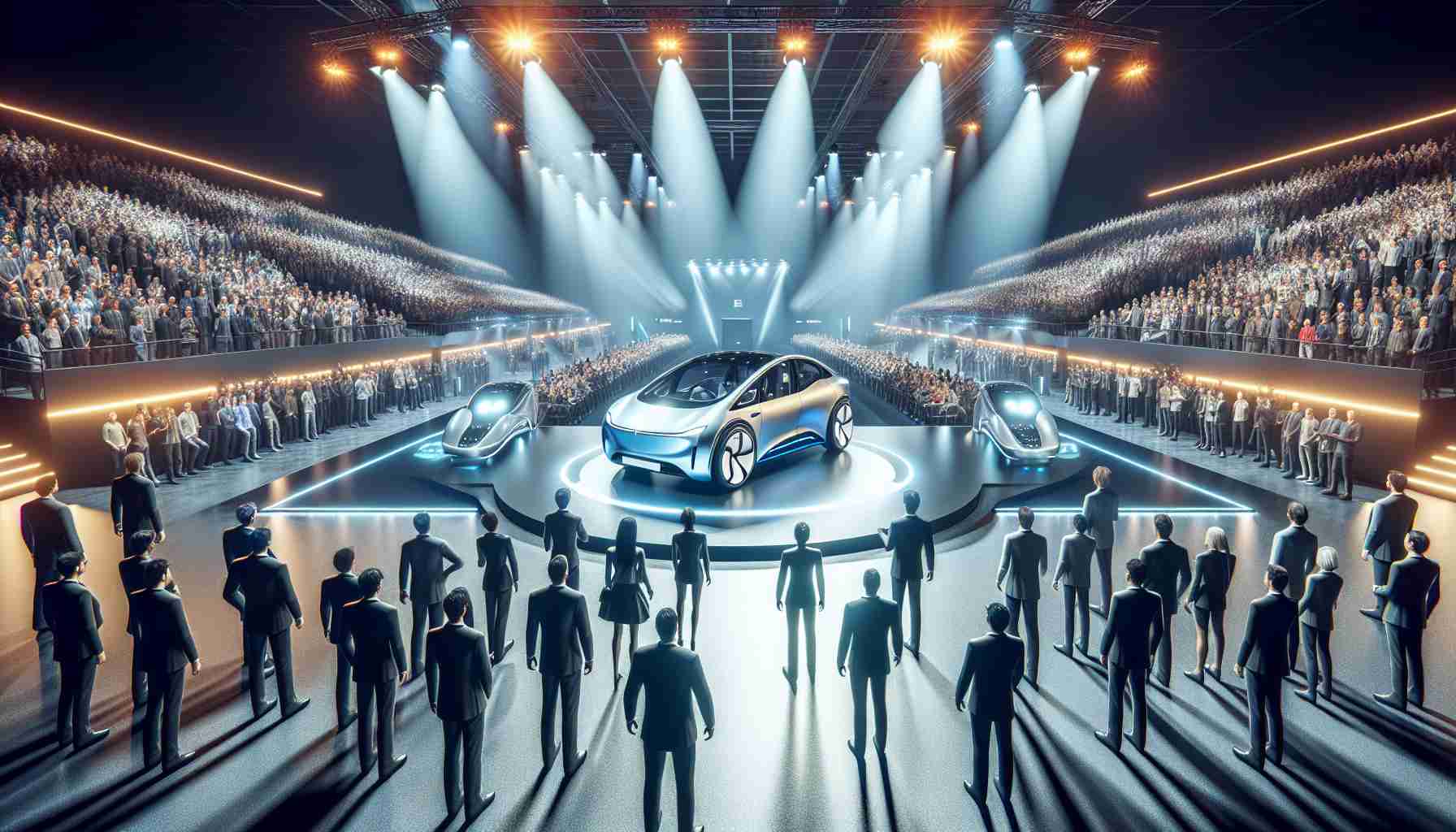The Electric Vehicle Revolution Continues
Tesla, the electric vehicle powerhouse, recently experienced a remarkable surge in its stock prices, closing the week with a notable 3.1% increase, and peaking earlier at an impressive rise of 6.3%. This rally is reminiscent of broader positive market movements, as indices like the S&P 500 and Nasdaq Composite also showed healthy gains.
A significant factor fueling this spike appears to be the speculation surrounding Elon Musk’s possible acquisition of TikTok. Reports have emerged indicating that U.S. regulators may push ByteDance, TikTok’s parent company, to sell its U.S. operations over rising data privacy issues. Analysts suggest that Musk’s potential entry into the social media landscape could bolster Tesla’s brand presence, even if it diverges from the company’s core automotive endeavors.
However, investors are taking note of a recent setback: Tesla reported its first annual sales decline, raising questions about its future growth prospects amidst a rapidly evolving competitive landscape. Traditional automakers are increasingly shifting focus to electric vehicles, intensifying the race for market dominance.
Tesla’s commitment to technological advancement and sustainability continues to set it apart. As it innovates across energy solutions and autonomous driving, the company is not only leading the automotive sector but also driving a larger cultural shift toward environmental awareness. As the company navigates through challenges, its influence on sustainability efforts and the EV market could reshape societal values for years to come.
Broader Implications of the Electric Vehicle Surge
The recent resurgence of electric vehicle (EV) stocks, particularly Tesla, underscores a transformative shift in the automotive industry that extends beyond market speculation. As more consumers embrace sustainability, the implications stretch into societal norms, cultural values, and the global economy at large. The insistence on eco-friendly alternatives in transportation is not merely a trend; it represents a significant cultural shift towards prioritizing environmental responsibility in daily life.
Moreover, the competitive landscape is rapidly evolving as traditional automakers commit substantial resources to electric vehicle technologies. Companies like Ford and GM are investing billions into electric models, signaling a collective move that could reshape economic dynamics. The global economy may benefit from increased job creation in the EV sector, particularly in manufacturing and infrastructure development.
However, the environmental impact of this shift warrants scrutiny. Transitioning to electric vehicles aims to reduce carbon emissions, but the lifecycle effects of battery production and disposal raise concerns. As demand for lithium and cobalt rises, significant pressure is placed on natural resources, which could lead to environmental degradation if not managed responsibly.
Looking forward, trends such as advancements in battery technology and increased reliance on renewable energy sources will likely dictate the future direction of the EV market. As companies innovate, they will play a pivotal role in determining the long-term significance of electric vehicles within the context of sustainable global growth. The robust interplay between technology, culture, and environmental stewardship sets the stage for a new era in transportation.
Is Tesla’s Stock Surge Sustainable Amidst Increasing Competition?
The Electric Vehicle Revolution Continues
The electric vehicle (EV) market is experiencing a transformative phase, highlighted by Tesla’s recent stock performance. The company’s shares surged by 3.1% at the end of the week, reaching a peak increase of 6.3%. This upward trend parallels broader market gains, as major indices like the S&P 500 and Nasdaq Composite also experienced positive movements.
Insights into Market Trends
The current rally in Tesla’s stock may be tied to speculation regarding CEO Elon Musk’s potential acquisition of TikTok. As U.S. regulators threaten to force ByteDance, TikTok’s parent company, to divest its U.S. operations due to escalating data privacy concerns, analysts posit that Musk’s entry into the social media sphere could enhance Tesla’s brand visibility beyond automotive sales. This is crucial as Tesla faces increasing pressure from competitors who are rapidly advancing their own electric vehicle capabilities.
Pros and Cons of Tesla’s Current Strategy
Pros:
– Strong Brand Recognition: Tesla’s association with innovation and sustainability continues to attract consumers and investors alike.
– Technological Advancements: The company is at the forefront of developments in battery technology and autonomous driving, setting industry standards.
– Market Leadership: Despite recent sales declines, Tesla’s position as a leader in the EV market has solidified its influence.
Cons:
– Sales Decline: Reports reveal that Tesla has faced its first annual sales decline, raising concerns about its growth trajectory.
– Intensifying Competition: Established automakers are increasingly pivoting to EV production, leading to a more crowded market landscape.
– Dependence on Consumer Sentiment: The speculative nature of stock movements tied to social media aspirations can be fickle.
Use Cases and Innovations
Tesla’s commitment to sustainability and innovation is not merely a marketing stance—it is a fundamental aspect of its business strategy. The company’s advancements in energy solutions, such as solar products and energy storage, complement its automotive operations, creating a comprehensive ecosystem around renewable energy.
Limitations and Future Predictions
As the EV market evolves, several limitations could impact Tesla’s future:
– Supply Chain Challenges: Global supply chain issues continue to affect production capabilities for many automakers, including Tesla.
– Changing Consumer Preferences: As the market diversifies, consumer preferences may shift toward a wider range of options, including more affordable EV models.
Looking forward, industry experts predict that the landscape will favor automakers who can swiftly adapt to technological advancements and consumer demands. The emphasis will likely be on both performance and environmental sustainability.
Security and Sustainability Aspects
In a world increasingly tuned into environmental issues, Tesla’s focus on sustainability positions it favorably among a growing demographic of eco-conscious consumers. The company’s electric vehicles not only reduce carbon emissions but also promote the use of renewable energy sources. Tesla’s approach to security, both in terms of vehicle safety and personal data protection, will be critical as it ventures into new domains, such as social media.
Market Analysis
The busy EV landscape is a double-edged sword for Tesla. While it helps to galvanize innovation and improve products across the board, increased competition could erode its market share. According to recent market analysis, traditional auto manufacturers are investing billions into EV development, prominent examples include Ford and GM, who have unveiled ambitious plans to electrify their offerings over the next decade.
In conclusion, Tesla’s ability to navigate the intersection of technological innovation, market dynamics, and evolving consumer preferences will determine its ongoing success in the electric vehicle revolution. As the competition heats up, the company’s next moves will be closely watched by investors and consumers alike.
For further insights on electric vehicles and the evolving market dynamics, visit Tesla’s official website.



















